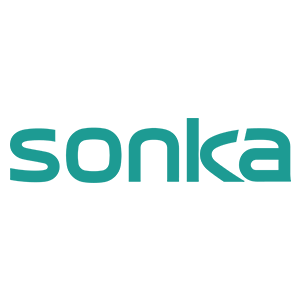Smart medical device integration involves the coordination and connection of various smart health devices to effectively manage patient information and enhance healthcare delivery. This integration process ensures that devices such as body composition analyzers, which assess elements like body mass and hydration levels, can seamlessly communicate with healthcare systems. By doing so, they provide accurate and timely data, which is crucial for effective patient management and care.
The importance of interoperability cannot be overstated in enabling diverse medical devices to share data seamlessly. Interoperability ensures that vital signs monitors and other devices can integrate smoothly into health data systems, thus improving response times and facilitating more informed clinical decision-making. By standardizing data formats and communication protocols, healthcare providers can access comprehensive patient data from different sources, ultimately elevating the quality of care provided.
Streamlining clinical operations brings significant advantages to healthcare providers, notably by enhancing patient care and safety. By improving data access, healthcare professionals can deliver timely interventions and devise more personalized treatment plans. Effective data management reduces the likelihood of hospital readmissions as healthcare teams can anticipate and mitigate potential health issues before they escalate. A study supports that hospitals utilizing efficient data systems observe a remarkable 30% decrease in readmissions due to better oversight and preventive care measures.
Moreover, operational costs in healthcare facilities can be drastically reduced through process automation and optimized resource allocations. This approach eliminates redundancies and streamlines workflows, resulting in significant cost savings. Efficient clinical operations can lower overhead expenses by up to 30%, leveraging technology to replace manual tasks and reallocating resources to areas with the greatest need. Automation further facilitates error reduction and ensures that the healthcare workforce can focus on delivering high-quality patient care rather than administrative tasks. These benefits demonstrate the profound impact of integrating technology in healthcare systems, paving the way for enhanced efficiency and improved patient outcomes.
The integration of smart medical devices is significantly driven by data integration solutions like Health Information Exchanges (HIEs) and Application Programming Interfaces (APIs). These technological solutions enable efficient exchange of patient data across disparate platforms, promoting enhanced care coordination. For instance, APIs facilitate seamless retrieval and synchronization of health records, ensuring healthcare providers have access to comprehensive patient information, which is crucial in delivering holistic and timely care. HIEs further support this by offering a structured way for organizations to share critical patient data, improving the quality of healthcare delivery.
Artificial intelligence (AI) applications are transforming clinical settings by offering real-time analysis of patient data, providing predictive insights that can optimize treatment plans and enhance patient outcomes. AI tools, especially those incorporating machine learning algorithms, can predict patient deterioration, suggest tailored treatment plans, and even identify potential complications before they manifest. Such capabilities not only improve patient care but also reduce the burden on healthcare systems by avoiding unnecessary treatments and hospital admissions. AI's role in enabling proactive healthcare management is a promising step towards a more efficient and patient-centered healthcare environment.
The Multi Function Holter Heart Monitor Smart Tablet stands as a pivotal tool in clinical operations by continuously monitoring vital signs. This device aids healthcare providers with its comprehensive reporting capability, allowing for early diagnosis of potential health issues. Its portability and easy-to-use touchscreen offer a seamless experience in various medical settings.
The Sonka Medical Device Smart Electronic Weight and Height Scale is a noteworthy innovation that supports precise patient monitoring. Its integration capabilities with electronic health records (EHRs) ensure that data is readily accessible and reliable, enhancing the efficiency of patient management in clinics and pharmacies.
Another crucial device is the Sonka Manufacturer Smart Obesity Weight Scale, which offers comprehensive body composition analysis. This tool is instrumental in obesity management and supports outreach programs by offering precise data that can be used to tailor effective health interventions at the community level.
Finally, the Sonka Body Fat Scale Community Medical Device is instrumental in community health initiatives. By providing accessible data on body composition and wellness, this device empowers individuals and healthcare providers to enhance overall community health, offering a detailed insight into body metrics.
Incorporating these devices into clinical operations not only streamlines processes but also enhances the accuracy and efficiency of patient care.
Integrating smart devices in healthcare settings faces significant challenges primarily due to interoperability issues. The lack of standardization across various devices can impede effective communication and seamless data exchange, which are crucial for optimized healthcare delivery. Different manufacturers often use proprietary protocols, making it difficult for systems to work together smoothly. This disparity can create data silos, hindering coordination and disrupting the flow of vital information critical for patient care.
Moreover, data security and privacy concerns are paramount in the healthcare sector. As smart devices collect and transmit sensitive health information, breaches can have severe consequences, ranging from financial penalties to compromised patient safety. Experts urge the implementation of robust security protocols to protect against unauthorized access and data leaks. Ensuring compliance with regulations like HIPAA is also essential to maintain trust and integrity within healthcare systems. Implementing strong encryption and access controls is crucial to safeguarding patient information while enabling the full potential of smart healthcare technology.
Advancements in telehealth are significantly shaping the future of patient interactions with healthcare providers. Through improved access to care and enhanced convenience, telehealth is encouraging the more widespread adoption of remote monitoring tools. Such technologies allow patients to receive medical attention without the need for frequent in-person visits, thereby improving accessibility and reducing hospital readmission rates. As telemedicine usage has increased by 80% globally in the past year, its impact on patient care continues to grow, facilitating cost-saving measures for both patients and healthcare facilities.
The integration of Artificial Intelligence (AI) and predictive analytics into healthcare systems holds the promise of transforming patient care through data-driven strategies. AI technologies are enabling proactive care management by predicting potential health issues and delivering real-time insights to healthcare providers. By 2032, the AI healthcare market is expected to reach USD 238.5 billion, underlining its significant influence on the sector. These advancements make it possible to improve patient outcomes through targeted interventions, optimize workflows, and reduce the burden on healthcare staff, indicating a progressive shift towards more intelligent and efficient healthcare solutions.


Copyright © 2025 by Shenzhen Sonka Medical Technology Co., Limited - Privacy policy